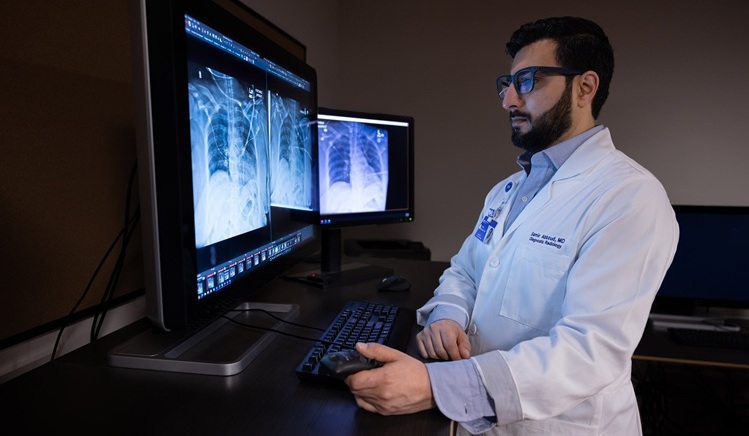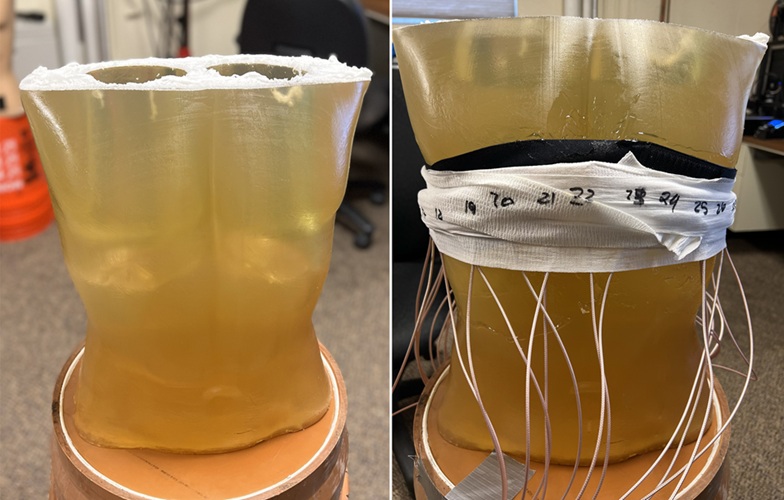GE Healthcare to Acquire Cancer Diagnostics Company
|
By MedImaging International staff writers Posted on 15 Nov 2010 |
GE Healthcare (Chalfont St. Giles, UK), a unit of General Electric Co. (Fairfield, CT, USA), and Clarient, Inc. (Aliso Viejo, CA, USA) announced that they have entered into a definitive agreement for GE Healthcare to acquire Clarient, a leading player in the fast-growing molecular diagnostics sector. Clarient's technologies, combined with GE Healthcare's strengths in diagnostic imaging, are expected to accelerate the development of new integrated tools for the diagnosis and characterization of cancer.
A subsidiary of GE will commence a tender offer for all outstanding common and preferred shares of Clarient at US$5.00 per common share and $20.00 per preferred share, in each case payable in cash.
Molecular diagnostics provide specific data about a patient's cancer and can help clinicians decide on the best treatment. The rapid increase in the incidence of cancer worldwide, combined with developments in specific cancer-focused therapies, is driving considerable demand for molecular diagnostics. The global demand for cancer-profiling products and services is predicted to grow from $15 billion in 2009 to an estimated $47 billion by 2015. Since 2005, Clarient's revenues have grown at a 68% compounded annual growth rate.
John Dineen, president and CEO of GE Healthcare, said, "GE Healthcare has built a world-class set of diagnostic, information and life science technologies. We are experiencing solid growth in the core business this year and we see that growth continuing into 2011. Adding Clarient's leading technology to our portfolio will accelerate our expansion into cancer diagnostics and therapy selection tools, while strongly enhancing our current diagnostic and life sciences offerings. We believe we can build a $1 billion-plus business by developing integrated diagnostic solutions for cancer and other diseases. GE and Clarient share a vision that through the integration of our diagnostic technologies we can help pathologists and oncologists make more confident clinical decisions, bring improvements in the quality of patient care, and lower the costs of disease management.”
Ron Andrews, CEO and vice chairman of Clarient, said, "The combination of Clarient's people, technologies, and services with the resources, brand value, technical capabilities, and global reach of GE Healthcare is a tremendous opportunity for the highly talented Clarient team. We will now have access to the resources we need to accelerate our development plans. We are proud of the progress we have made in bringing our molecular diagnostic technologies to market, and joining with GE Healthcare will allow us to realize our ambitious plans and actualize our goal of becoming one of the industry's most relevant companies in the management of cancer.”
Commenting on the transaction, Mr. Andrews added, "We are very excited about becoming part of the GE Healthcare family, and we believe that the consideration being paid to Clarient stockholders appropriately reflects the value that we have built at Clarient. This is good news for our stockholders, for the healthcare community, and for patients.”
Related Links:
GE Healthcare
Clarient
A subsidiary of GE will commence a tender offer for all outstanding common and preferred shares of Clarient at US$5.00 per common share and $20.00 per preferred share, in each case payable in cash.
Molecular diagnostics provide specific data about a patient's cancer and can help clinicians decide on the best treatment. The rapid increase in the incidence of cancer worldwide, combined with developments in specific cancer-focused therapies, is driving considerable demand for molecular diagnostics. The global demand for cancer-profiling products and services is predicted to grow from $15 billion in 2009 to an estimated $47 billion by 2015. Since 2005, Clarient's revenues have grown at a 68% compounded annual growth rate.
John Dineen, president and CEO of GE Healthcare, said, "GE Healthcare has built a world-class set of diagnostic, information and life science technologies. We are experiencing solid growth in the core business this year and we see that growth continuing into 2011. Adding Clarient's leading technology to our portfolio will accelerate our expansion into cancer diagnostics and therapy selection tools, while strongly enhancing our current diagnostic and life sciences offerings. We believe we can build a $1 billion-plus business by developing integrated diagnostic solutions for cancer and other diseases. GE and Clarient share a vision that through the integration of our diagnostic technologies we can help pathologists and oncologists make more confident clinical decisions, bring improvements in the quality of patient care, and lower the costs of disease management.”
Ron Andrews, CEO and vice chairman of Clarient, said, "The combination of Clarient's people, technologies, and services with the resources, brand value, technical capabilities, and global reach of GE Healthcare is a tremendous opportunity for the highly talented Clarient team. We will now have access to the resources we need to accelerate our development plans. We are proud of the progress we have made in bringing our molecular diagnostic technologies to market, and joining with GE Healthcare will allow us to realize our ambitious plans and actualize our goal of becoming one of the industry's most relevant companies in the management of cancer.”
Commenting on the transaction, Mr. Andrews added, "We are very excited about becoming part of the GE Healthcare family, and we believe that the consideration being paid to Clarient stockholders appropriately reflects the value that we have built at Clarient. This is good news for our stockholders, for the healthcare community, and for patients.”
Related Links:
GE Healthcare
Clarient
Latest Industry News News
- GE HealthCare and NVIDIA Collaboration to Reimagine Diagnostic Imaging
- Patient-Specific 3D-Printed Phantoms Transform CT Imaging
- Siemens and Sectra Collaborate on Enhancing Radiology Workflows
- Bracco Diagnostics and ColoWatch Partner to Expand Availability CRC Screening Tests Using Virtual Colonoscopy
- Mindray Partners with TeleRay to Streamline Ultrasound Delivery
- Philips and Medtronic Partner on Stroke Care
- Siemens and Medtronic Enter into Global Partnership for Advancing Spine Care Imaging Technologies
- RSNA 2024 Technical Exhibits to Showcase Latest Advances in Radiology
- Bracco Collaborates with Arrayus on Microbubble-Assisted Focused Ultrasound Therapy for Pancreatic Cancer
- Innovative Collaboration to Enhance Ischemic Stroke Detection and Elevate Standards in Diagnostic Imaging
- RSNA 2024 Registration Opens
- Microsoft collaborates with Leading Academic Medical Systems to Advance AI in Medical Imaging
- GE HealthCare Acquires Intelligent Ultrasound Group’s Clinical Artificial Intelligence Business
- Bayer and Rad AI Collaborate on Expanding Use of Cutting Edge AI Radiology Operational Solutions
- Polish Med-Tech Company BrainScan to Expand Extensively into Foreign Markets
- Hologic Acquires UK-Based Breast Surgical Guidance Company Endomagnetics Ltd.
Channels
Radiography
view channel
AI Radiology Tool Identifies Life-Threatening Conditions in Milliseconds
Radiology is emerging as one of healthcare’s most pressing bottlenecks. By 2033, the U.S. could face a shortage of up to 42,000 radiologists, even as imaging volumes grow by 5% annually.... Read more
Machine Learning Algorithm Identifies Cardiovascular Risk from Routine Bone Density Scans
A new study published in the Journal of Bone and Mineral Research reveals that an automated machine learning program can predict the risk of cardiovascular events and falls or fractures by analyzing bone... Read more
AI Improves Early Detection of Interval Breast Cancers
Interval breast cancers, which occur between routine screenings, are easier to treat when detected earlier. Early detection can reduce the need for aggressive treatments and improve the chances of better outcomes.... Read more
World's Largest Class Single Crystal Diamond Radiation Detector Opens New Possibilities for Diagnostic Imaging
Diamonds possess ideal physical properties for radiation detection, such as exceptional thermal and chemical stability along with a quick response time. Made of carbon with an atomic number of six, diamonds... Read moreMRI
view channel
New MRI Technique Reveals Hidden Heart Issues
Traditional exercise stress tests conducted within an MRI machine require patients to lie flat, a position that artificially improves heart function by increasing stroke volume due to gravity-driven blood... Read more
Shorter MRI Exam Effectively Detects Cancer in Dense Breasts
Women with extremely dense breasts face a higher risk of missed breast cancer diagnoses, as dense glandular and fibrous tissue can obscure tumors on mammograms. While breast MRI is recommended for supplemental... Read moreUltrasound
view channel
New Medical Ultrasound Imaging Technique Enables ICU Bedside Monitoring
Ultrasound computed tomography (USCT) presents a safer alternative to imaging techniques like X-ray computed tomography (commonly known as CT or “CAT” scans) because it does not produce ionizing radiation.... Read more
New Incision-Free Technique Halts Growth of Debilitating Brain Lesions
Cerebral cavernous malformations (CCMs), also known as cavernomas, are abnormal clusters of blood vessels that can grow in the brain, spinal cord, or other parts of the body. While most cases remain asymptomatic,... Read moreNuclear Medicine
view channel
New Imaging Approach Could Reduce Need for Biopsies to Monitor Prostate Cancer
Prostate cancer is the second leading cause of cancer-related death among men in the United States. However, the majority of older men diagnosed with prostate cancer have slow-growing, low-risk forms of... Read more
Novel Radiolabeled Antibody Improves Diagnosis and Treatment of Solid Tumors
Interleukin-13 receptor α-2 (IL13Rα2) is a cell surface receptor commonly found in solid tumors such as glioblastoma, melanoma, and breast cancer. It is minimally expressed in normal tissues, making it... Read moreGeneral/Advanced Imaging
view channel
CT Colonography Beats Stool DNA Testing for Colon Cancer Screening
As colorectal cancer remains the second leading cause of cancer-related deaths worldwide, early detection through screening is vital to reduce advanced-stage treatments and associated costs.... Read more
First-Of-Its-Kind Wearable Device Offers Revolutionary Alternative to CT Scans
Currently, patients with conditions such as heart failure, pneumonia, or respiratory distress often require multiple imaging procedures that are intermittent, disruptive, and involve high levels of radiation.... Read more
AI-Based CT Scan Analysis Predicts Early-Stage Kidney Damage Due to Cancer Treatments
Radioligand therapy, a form of targeted nuclear medicine, has recently gained attention for its potential in treating specific types of tumors. However, one of the potential side effects of this therapy... Read moreImaging IT
view channel
New Google Cloud Medical Imaging Suite Makes Imaging Healthcare Data More Accessible
Medical imaging is a critical tool used to diagnose patients, and there are billions of medical images scanned globally each year. Imaging data accounts for about 90% of all healthcare data1 and, until... Read more














.jpeg)





